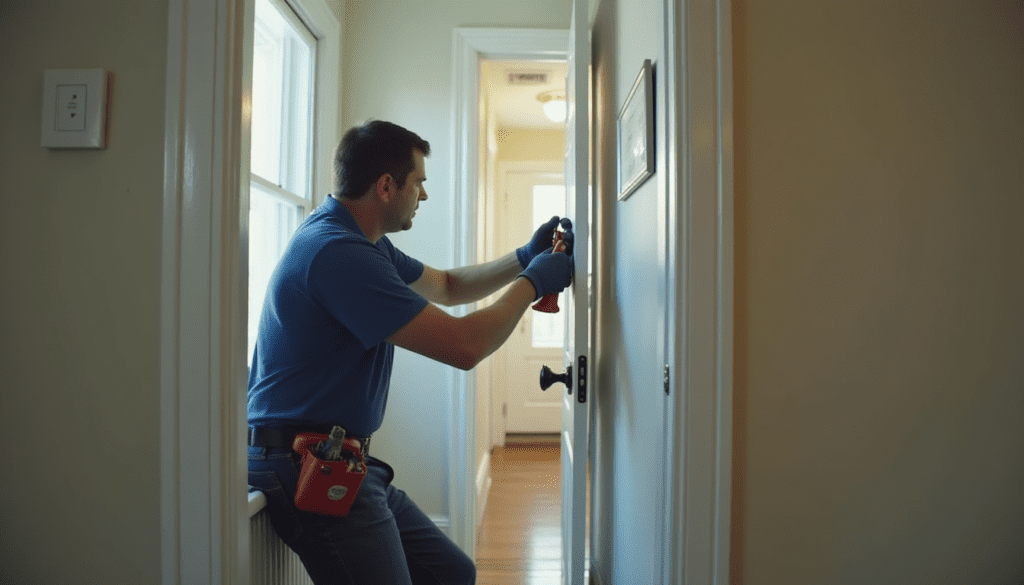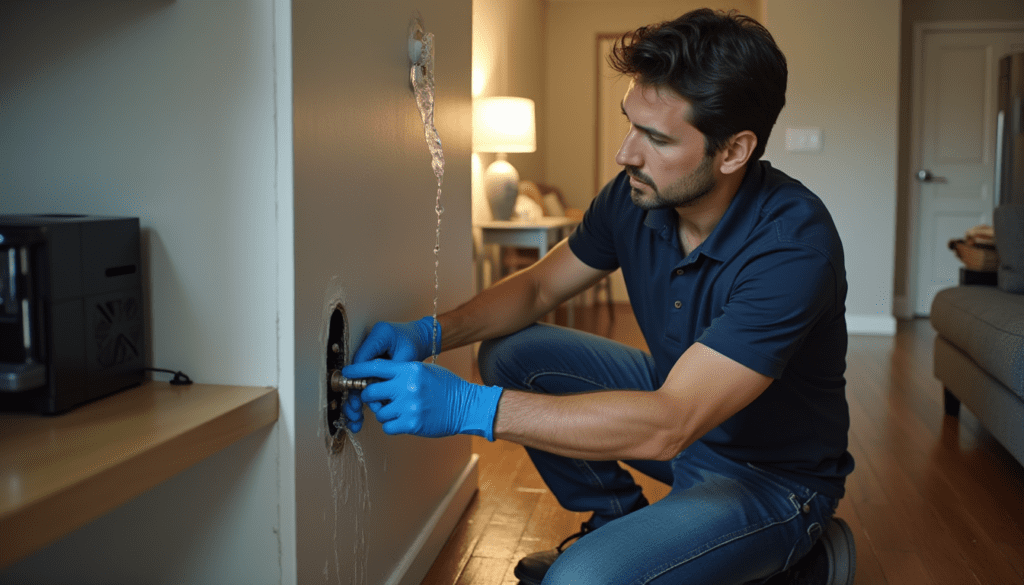As a landlord in Garfield, New Jersey, dealing with a situation where a tenant appears to have abandoned your rental unit can feel like navigating a minefield. You’re managing unpaid rent, potentially stranded belongings, and the legal obligation to follow the correct procedures under the N.J.S.A. 2A:18 72 (commonly referred to as the Abandoned Tenant Property Act) so that you don’t expose yourself to liability. In this guide we walk through the full process — from spotting signs of abandonment to legally reclaiming and re-renting the unit in Garfield, NJ — using the right keywords and offering actionable steps.
Understanding Tenant Abandonment: What It Means
Definition of abandonment in a rental context
“Tenant abandonment” occurs when a tenant vacates the rental unit without notice, stops paying rent, leaves behind personal property, and shows no intent to return — effectively surrendering possession of the property. For landlords in Garfield, NJ, being able to determine abandonment gives you the right to begin reclaiming the unit, but it also triggers specific duties under New Jersey law.
How abandonment differs from simple vacancy or lease termination
It’s important to distinguish abandonment from a tenant simply ending their lease or moving out with notice. When a lease ends, there is clear communication and a process. With abandonment, there is often no notice, unpaid rent builds up, utilities may be disconnected, and belongings may be left behind. Acting prematurely can amount to wrongful re-entry; acting too late can cost you rent and delay re-renting the unit.
Signs That a Tenant Has Abandoned the Rental Unit
Non-payment of rent, utilities shut-off, no contact
One of the first red flags is that the tenant stops paying rent or fails to respond to your communications. Your property management team in Garfield might become aware of utility disconnections, unpaid service notices, or lack of access to the unit for inspections. These signs together raise the possibility of abandonment.
Physical cues: belongings removed, unit left vacant
On the other hand, you’ll want to inspect the unit (in compliance with your lease and local law) and look for more tangible indicators: the tenant’s personal items are gone, the space looks like it’s been vacated, the mailbox is full of letters, and there’s no active use of the space. Taking good photographs and documenting the condition is key to supporting your decision to treat it as abandoned.
Legal Framework in New Jersey for Abandoned Tenant Property
Overview of N.J.S.A. 2A:18-72 et seq. (Abandoned Tenant Property Act)
Under the Abandoned Tenant Property Act — codified as N.J.S.A. 2A:18-72 et seq. — a landlord cannot simply dispose of a tenant’s belongings the moment they suspect abandonment. Two conditions must be met: first, the landlord must have regained possession of the premises (either via an eviction action or a clear surrender of keys/possession), and second, the landlord must serve written notice to the tenant giving them 33 days to claim their property. :contentReference[oaicite:1]{index=1}
Conditions under which property is deemed abandoned
The statute is precise. It stipulates that disposal can only occur after you’ve regained possession and served written notice. A New Jersey landlord-tenant law firm emphasizes: “the Landlord must have regained possession … and the landlord shall also serve the tenant with a written notice, advising the tenant that he or she must claim all belongings … within 33 days.” :contentReference[oaicite:2]{index=2} If these steps aren’t followed, you risk a wrongful disposal claim — potentially doubling your liability. :contentReference[oaicite:3]{index=3}
Initial Steps a Landlord Should Take When Abandonment Is Suspected
Contacting the tenant, documenting evidence, securing the unit
Once you suspect abandonment in your Garfield rental property, initiate contact: send certified mail asking if the tenant intends to continue occupancy, document any unanswered requests, and inspect (with proper notice) to evaluate whether the unit appears abandoned. Take photos of the condition, note utilities, and secure the unit so that squatters or theft don’t become additional issues.
Reviewing the lease terms and confirming legal possession
Review your lease agreement carefully: see how it defines abandonment, your notice rights, and your duty to mitigate damages. Confirm you have legal possession of the property — if the tenant simply disappeared but the lease remains active and no surrender or eviction has occurred, the unit isn’t lawfully yours yet. Only after you regain possession can you serve the 33-day notice required under N.J.S.A. 2A:18-72 for abandoned property disposal. :contentReference[oaicite:4]{index=4}
Handling the Tenant’s Left-Behind Personal Property
Required notice to tenant under NJ law
In Garfield, New Jersey, a landlord who discovers that a tenant has left property behind after abandonment cannot immediately dispose of or sell those items. The Abandoned Tenant Property Act (N.J.S.A. 2A:18-72 et seq.) requires that you send a written notice to the tenant’s last known address — and if possible, to any emergency contact listed on the lease. The notice must specify that the tenant has 33 days from the date of mailing to claim their property, after which the landlord may dispose of or sell it. The New Jersey Department of Community Affairs provides examples of compliant language and procedures.
Storage, disposal, and sale of abandoned items
Once notice is sent, landlords must store the tenant’s belongings safely. Storage doesn’t have to be free, but reasonable care must be taken to avoid damage or theft. If the tenant does not claim their property within the 33-day window, you can sell or discard the items. Any proceeds from a sale can be applied to unpaid rent or damages, with the balance (if any) returned to the tenant upon request. Legal specialists, such as NewJerseyEvictionLaw.com, emphasize that keeping clear records of notices and photos of the property protects landlords if disputes arise later.
Regaining Possession and Re-Renting the Unit
Ensuring proper legal termination or eviction, restoring possession
Before cleaning or re-renting an abandoned unit, confirm that you’ve legally regained possession. In many cases, possession reverts automatically when a tenant clearly abandons and fails to respond to notice. However, if the lease is ongoing, it’s safest to file a complaint for possession in the Garfield Municipal Court to prevent potential wrongful eviction claims. After gaining lawful possession, you may change locks and begin turnover procedures. Make sure to document the state of the unit and any damages thoroughly, as this will help in pursuing a claim for unpaid rent or repair costs.
Preparing the unit for new tenancy
Once the legal formalities are complete, inspect, clean, and repair the property. Hire licensed contractors or property management professionals to address any safety issues. Document all expenses so that you can offset them against the tenant’s security deposit, if applicable. In Garfield, landlords are also responsible for ensuring compliance with local health and housing codes before listing the property again. Using a professional property management firm such as RentShield Property Management can streamline these steps and ensure compliance with Garfield’s rental ordinances.
Financial Impacts and Recovering Costs
Unpaid rent, damages, and storage costs
Tenant abandonment can leave a landlord with significant financial losses — missed rent payments, cleaning expenses, damage repairs, and sometimes unpaid utilities. Fortunately, New Jersey law allows landlords to pursue these losses through civil court if the amount exceeds the security deposit. The sale of any abandoned property can also be applied to these unpaid balances. Detailed recordkeeping and communication logs help ensure that the court recognizes your claim as legitimate and well-documented.
Deductions from sale proceeds of abandoned property
According to LeaseRunner’s guide on New Jersey abandoned property, landlords may deduct reasonable costs for storage, notice mailing, and sale handling before applying proceeds toward unpaid rent or damage costs. The tenant has the right to request any remaining balance, but only after verifying their identity and forwarding address. By maintaining transparency and documentation throughout this process, Garfield landlords demonstrate good faith — a factor courts look for when adjudicating disputes over abandoned property.
Risk and Liability: What Landlords Must Avoid
Wrongful eviction risks if you act too early
Acting too quickly in an abandonment case can backfire. If a tenant was merely away for an extended period but hadn’t truly abandoned the property, changing locks or removing belongings could be viewed as wrongful eviction. The safest approach is to send written communications first, post a notice at the property, and wait a reasonable period before taking physical control of the unit. In Garfield, NJ, it’s wise to consult a landlord-tenant attorney if there’s any doubt about the tenant’s intentions.
Improper disposal of tenant’s property and potential lawsuits
Disposing of tenant belongings without following the 33-day notice procedure can expose you to costly litigation. The NJ Statewide Attorneys website notes that landlords who skip this step may owe the tenant the full replacement value of the items plus damages. Always follow the Abandoned Property Act exactly — send notice, store items securely, and keep proof of each step. By following the proper legal process, you can minimize liability and show good-faith compliance with state law.
Preventive Measures: Protecting Yourself from Tenant Abandonment
Lease language and abandonment clauses
The best protection is prevention. Include clear abandonment clauses in your lease, specifying the number of days of absence or unpaid rent that constitutes abandonment. Clarify that tenants must provide written notice if they intend to vacate early. This written expectation gives landlords more leverage in proving abandonment if the issue arises later.
Screening, monitoring, and regular communication
Regular communication with tenants is one of the simplest yet most effective strategies. Proactive property managers in Garfield maintain periodic contact and conduct scheduled inspections (with notice) to ensure that tenants remain engaged and responsive. Thorough tenant screening — checking employment, income stability, and rental history — also reduces the chance of abrupt abandonment. Partnering with an experienced property management firm helps monitor occupancy and address early warning signs before they escalate.
Best Practices in Garfield NJ for Property Managers and Landlords
Local property-management coordination and documentation
In Garfield, NJ, where the rental market can be competitive and regulations are closely tied to Bergen County ordinances, maintaining meticulous documentation is a landlord’s best safeguard. Property managers should keep a timeline of events—when the rent stopped arriving, when attempts to contact the tenant were made, and when inspections occurred. Using this documentation, you can prove to courts or municipal officers that your actions were lawful and timely. Many landlords in Garfield choose to collaborate with property management firms like RentShield Property Management to handle tenant communication, abandonment notices, and unit turnover efficiently and legally.
Handling community and neighborhood impact
An abandoned unit doesn’t just affect your rental income—it impacts the entire neighborhood. Vacant properties can attract vandalism, squatters, or pests. Garfield’s local housing code, as outlined in the Garfield Municipal Code, requires landlords to maintain the exterior condition of vacant rental units and keep them secure. Regular property checks, lawn maintenance, and visible signage that the property is managed can deter trespassing and preserve neighborhood safety.
Case Study: A Garfield Landlord Responds to Tenant Abandonment
From suspicion to re-renting—an example
Imagine a landlord named Robert who owns a two-bedroom apartment near Passaic Street in Garfield, NJ. His tenant, who had always paid on time, suddenly stopped communicating and missed two consecutive rent payments. The mailbox overflowed, neighbors reported that they hadn’t seen anyone for weeks, and utilities were shut off. Suspecting abandonment, Robert followed New Jersey’s Abandoned Tenant Property Act steps:
- He documented the unit’s condition with photos and inspection notes.
- He mailed a certified letter to the tenant’s last known address, giving 33 days to claim any property left behind.
- After receiving no response, he safely stored the tenant’s remaining furniture for the notice period.
- After the deadline passed, he disposed of low-value items, applied any sale proceeds to unpaid rent, and began preparing the unit for re-rental.
Within six weeks, Robert had legally regained possession, avoided any legal disputes, and re-listed the property for new tenants. This case underscores how following the law protects Garfield landlords from fines and liability while restoring cash flow efficiently.
FAQs: Common Questions Landlords Ask
What constitutes tenant abandonment in Garfield, NJ?
Abandonment usually means the tenant has stopped paying rent, vacated the unit without notice, and left belongings behind, showing no intent to return. Documentation and communication records are key to proving abandonment.
How long must a landlord wait before treating a unit as abandoned?
New Jersey law requires landlords to provide written notice to the tenant giving them 33 days to respond or retrieve belongings. Only after this period passes can the property be legally treated as abandoned.
What should I do with a tenant’s belongings left behind?
Send a written notice per N.J.S.A. 2A:18-72 and store the belongings for at least 33 days. If unclaimed, you can sell, donate, or dispose of them, but maintain records and receipts.
Can I re-rent the property right away?
Only after you’ve legally regained possession—either through surrender or eviction—and confirmed abandonment. Re-renting too soon could lead to wrongful eviction claims.
What happens if I dispose of property without notice?
Failing to follow the statutory notice period can make you liable for damages equal to or greater than the value of the tenant’s property. Always follow NJ’s Abandoned Property Act to the letter.
Can a property management company help?
Yes. A licensed property management company in Garfield, like RentShield Property Management, can manage all communications, notices, and inspections on your behalf, ensuring full compliance with New Jersey law.
Conclusion
Tenant abandonment is one of the most frustrating challenges a landlord can face. By understanding what constitutes abandonment, following New Jersey’s Abandoned Property Act, and documenting every step, you can reclaim your property legally and minimize losses. Garfield landlords who act methodically—sending written notices, storing belongings properly, and verifying legal possession—protect themselves from future disputes and financial setbacks. If handling abandonment feels overwhelming, consider partnering with an experienced local property management company to guide you through the process and keep your investment secure.
If you’re a landlord or property manager in Garfield, NJ dealing with a suspected tenant abandonment, contact RentShield Property Management today for expert assistance and legal-compliant property management solutions.
Disclaimer
Disclaimer: This article provides general information about landlord-tenant law in New Jersey and does not constitute legal advice. Laws may change, and individual cases may differ. Always consult a qualified New Jersey landlord-tenant attorney before taking legal action related to tenant abandonment or disposal of tenant property.






